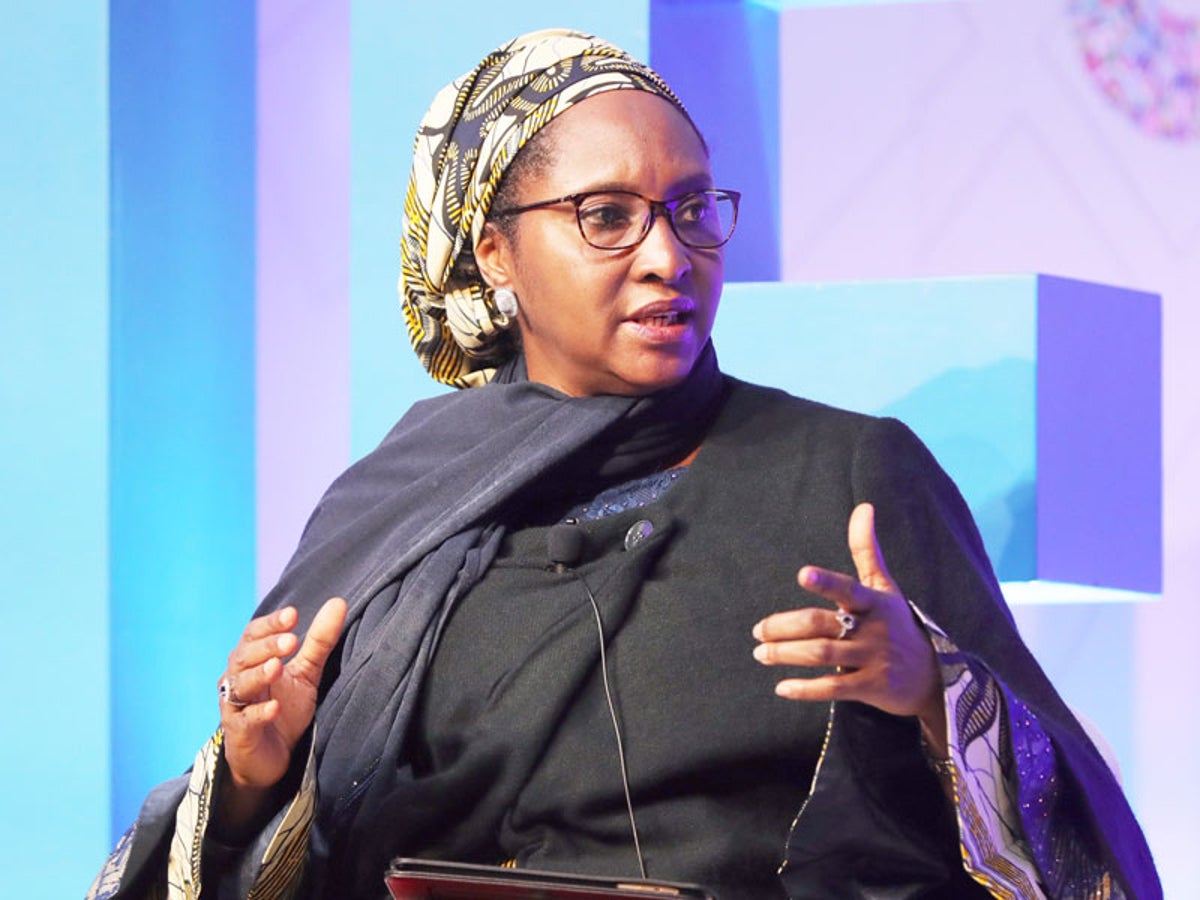

Minister of Finance, Budget and National Planning, Mrs Zainab Ahmed, has reacted to criticisms against the Federal Government’s huge loans to finance capital projects, saying the administration is borrowing “sensibly” to cater to the country’s infrastructure needs including rail.
She also said the economy was indeed beginning to pick up on account of the huge contribution from the non-oil sector.
She spoke in Abuja on Monday at a press conference on the recent report by the National Bureau of Statistics on the growth of the economy.
Minister of Information and Culture, Lai Mohammed, was also present at the press conference.
Ahmed said if Nigeria failed to invest in infrastructure, “we will regret it”.
Nigeria’s total public debt had hit N33.1 trillion as of March 2021 and many have expressed concern about the rate at which the government is borrowing to finance infrastructure projects.
But the minister said the investments would be beneficial to the country in the future.
“We are borrowing sensibly and we are investing in rail and other infrastructure,” she said, adding, “If we do not do these investments, we will regret. [These] investments will return revenue in the future.”
Speaking on the NBS report, Ahmed explained that the country’s economy would have grown above five per cent in the second quarter of 2021 but the agriculture sector recorded slower growth, owing to security challenges.
“The 2021 second quarter growth reflects better economic performance compared to the same quarter last year. The same quarter last year, we had a negative growth of -6.10 percent. It is also better than the first quarter of 2021,” she said.
The minister also said, “The service sector recorded a strong performance, growing by 9.27 percent this reporting quarter, representing the fastest growth in this sector since 2010.
“The second quarter growth of 2021 would have been much stronger than the 5.01 per cent but for agriculture that recorded a slightly lower growth.
“A number of bottlenecks within the system including insecurity have negatively affected the sector negatively. Also, the industrial sector slowed down to -1.3 per cent.”
She stressed that the non-oil sector contributed majorly to the growth witnessed in the second quarter.
“The non-oil sector recorded a growth of 7 percent which represents the fastest growth since the third quarter of 2014,” she said.
Ahmed noted that the nation’s economic and business activities were fully returning to pre-COVID-19 period.
CFAO subsidiary LOXEA unveils BYD electric vehicles in Nigeria A subsidiary of CFAO Mobility, LOXEA…
‘Bitcoin could replace U.S. Dollar as global currency’ BlackRock Chairman and CEO Larry Fink acknowledged…
Aide to Israel’s Netanyahu arrested in PM corruption probe Israeli police announced on Monday the arrest…
Kano Gov Yusuf, Sanusi linked to Eid killings A coalition of civil society organizations under the Global…
'I was offered N5bn bribe to impeach Fubara' The political tension in Rivers State has taken…
2027 election: Shehu Sani declares bid for Kaduna central senatorial seat Former Kaduna Central Senator, Shehu…